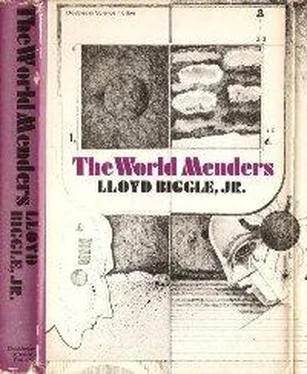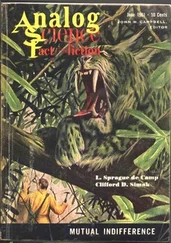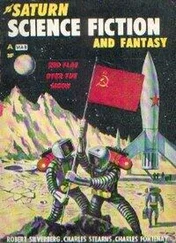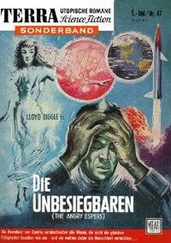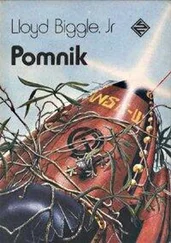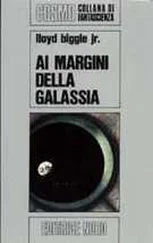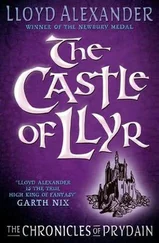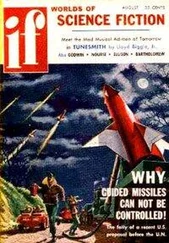Lloyd Biggle Jr. - The World Menders
Здесь есть возможность читать онлайн «Lloyd Biggle Jr. - The World Menders» весь текст электронной книги совершенно бесплатно (целиком полную версию без сокращений). В некоторых случаях можно слушать аудио, скачать через торрент в формате fb2 и присутствует краткое содержание. Год выпуска: 1971, Издательство: Doubleday, Жанр: Фантастика и фэнтези, на английском языке. Описание произведения, (предисловие) а так же отзывы посетителей доступны на портале библиотеки ЛибКат.
- Название:The World Menders
- Автор:
- Издательство:Doubleday
- Жанр:
- Год:1971
- ISBN:нет данных
- Рейтинг книги:5 / 5. Голосов: 1
-
Избранное:Добавить в избранное
- Отзывы:
-
Ваша оценка:
- 100
- 1
- 2
- 3
- 4
- 5
The World Menders: краткое содержание, описание и аннотация
Предлагаем к чтению аннотацию, описание, краткое содержание или предисловие (зависит от того, что написал сам автор книги «The World Menders»). Если вы не нашли необходимую информацию о книге — напишите в комментариях, мы постараемся отыскать её.
The World Menders — читать онлайн бесплатно полную книгу (весь текст) целиком
Ниже представлен текст книги, разбитый по страницам. Система сохранения места последней прочитанной страницы, позволяет с удобством читать онлайн бесплатно книгу «The World Menders», без необходимости каждый раз заново искать на чём Вы остановились. Поставьте закладку, и сможете в любой момент перейти на страницу, на которой закончили чтение.
Интервал:
Закладка:
“I said it must take a lot of mills to feed the population.”
She nodded. “We could do it by oursleves, you know. We have a power mill here, and we do most of our grinding on it. We have to have the output expected of a mill of this size, and if we did all the grinding with those primitive grindstones it would require more manpower than we can spare. Because, you understand, everyone connected with this place has to be IPR. We operate continuously, but only enough stones to make it sound as if we’re furiously busy.”
“Power mill?” Farrari repeated. “But I thought—”
“We aren’t giving it to the rascz,” she explained. “We’re just using it ourselves. It required quite a lot of adjustment to make it produce flour as coarsely ground as that of the mill. We’re very well situated here. Millers are among the most substantial citizens, and this is one of the most important mills in Scorvif. Enis is highly thought of. Even the court dignitaries stop to exchange mugs with him when they pass this way. A mill is a center for all kinds of traffic, which lets our agents come and go freely. We can send our supposed journeymen anywhere buying grain, or delivering flour, or prospecting for a new millstone. The noise of the mill is very useful when the workshop is operating. Yes, we’re very well situated.”
“How does an IPR agent get to be a substantial citizen like a miller?” Farrari asked.
She smiled. “With patience. And unlimited time. And even then it required luck. It took two generations of agents working as apprentices and journeymen before a miller died childless and we were able to purchase his mill.”
She led him to the clothing bins and picked out a worn, short-sleeved shirt, ragged trousers of coarse cloth, mud-spattered boots with wood soles and high cloth tops, and a skull cap. “We’ll start you out as an apprentice’s helper,” she said. “That door leads to the sleeping room. Sleep as long as you like, and put these on when you wake up. Someone will show you what an apprentice’s helper does, just in case visitors catch you upstairs, or outside, and you have to look busy. Can you speak Rasczian?”
“Only a little,” he admitted.
“Don’t try to speak it to a native. This country doesn’t have foreigners, and a person who can’t speak Rasczian flawlessly is unheard of. We should do something about your hair, no rase has long curly hair, but perhaps you can get by if you wear the cap. Anything else you’d like to know?”
“Yes,” Farrari said. “Why was I brought here?”
“Day before yesterday,” she said seriously, “base informed us that the kru was dead. We don’t often receive information from base. We are the ones who tell base what is happening in Scorvif. None of our agents had an inkling that the kru was in anything but the best of health, but, if base thought otherwise, we had to investigate. So we did, with considerable trouble and risk, and we learned that the kru was dead. That startled all of us. In the meantime Peter had returned to base to take care of accumulated business and pick up supplies, and he passed the word that the moving picture had been removed from the Life Temple. So we floated a platform up to the temple—this planet having no moon is sometimes very useful—and had a peek behind that precious drapery, and sure enough, the moving picture had been removed. Naturally Peter—all of us—wanted to know how base was finding out these things, and when it turned out that the Cultural Survey trainee was responsible, Peter decided to bring him here to find out what else he could do.” She smiled. “So that’s why you’re here. Better get some sleep. You’ll have an audience tomorrow—every agent who can get away is likely to want to see a Cultural Survey trainee in action.”
Farrari found himself in action as soon as he awoke, and he enjoyed none of it. He cleaned out a narnpf stall, learning to handle a heavy, wood-bladed shovel while not breathing through his nose. He helped to unload a grain wagon and then to load a flour wagon, mastering after a fashion the technique of balancing the heavy crocks on edge and maneuvering them. The young IPR agents performed such heavy manual labor stoically. Natives did it; they were natives, so they did it. Farrari’s muttered complaints first amused and then annoyed them. They sternly ordered him to mutter in silence until he’d learned to complain in Rasczian, and as punishment they left him to line up the grain crocks by himself. He managed to do it, upsetting only three of them on the process. Fortunately the seals held and there was no audience.
Rani Holt finally rescued him, leading him off to a meal of regulation IPR rations. He thanked her sincerely; she smiled and remarked that the native food took some getting used to, and those who had been eating it for years tended to forget that. Since Farrari had developed no compelling fondness for manipulating grain crocks, he ate slowly and relaxed his aching muscles. Not until he had finished did she inform him that he’d been ordered to attend a staff meeting that had already started.
He attempted to slip into the room unobserved, but conversation halted when he appeared. Enis Holt motioned him to the table, Jorrul indicated a vacant chair, and the four strange faces regarded him with frank curiosity.
Jorrul performed introductions: Anan Borgley, 112, baker in Scorv. Ned Lindor, 89, grainery supervisor. Bion Brilett, 130, stonecutter. Karl Mdan, 193, potter. Farrari acknowledged the introductions gravely, feeling increasingly impressed and puzzled. These men, in the work dress of their occupations, could visit a miller as often as they chose without causing comment. The baker could he buying flour; the grainery supervisor selling grain; the stonecutter shaping new millstones; the potter delivering grain crocks. IPR had achieved a fiendish efficiency on this planet. Why, then, did it accomplish so little?
“We have a mystery on our hands,” Jorrul said. “The kru is dead but there has been no public announcement except for the drapery on the Life Temple and no explanation of that. And there seems to be no public reaction. We were wondering if perhaps it’s been so long since a kru died that neither the officials nor the citizens quite know what’s to be done, or how they should act.”
“The kru was considered a god,” Farrari said. “Surely there’d be a religious tradition concerning his death, and for anything that important there’d be a voluminous written record. What does Jan Prochnow have to say about it?”
The six pairs of eyes remained fixed on Farrari. Jorrul said lightly, “We’d like to know what Cultural Survey has to say about it.”
Farrari experienced neither anger nor resentment. They had a new toy to play with, a Cultural Survey toy, and whether he joined in their game or not, the result had been predetermined by them. Two thousand years.
“Do the citizens know the meaning of the tapestry?” he asked.
“A guard was posted at the entrance to the temple square before the drapery was hung,” Borgley answered. “The square has been closed off ever since, at considerable inconvenience to the population—the city’s main thoroughfare passes through it. So they must know that something has happened or is about to happen, but no one talks about it.”
“You knew the kru was dead as soon as you saw the tapestry,” Jorrul said. “The citizens of Scorvif ought to be as perceptive as a Cultural Survey trainee concerning their own kru, but there’s been no reaction. Why?”
“Has any kind of tapestry or cloth been hung there before?” Farrari asked.
Borgley shook his head.
Читать дальшеИнтервал:
Закладка:
Похожие книги на «The World Menders»
Представляем Вашему вниманию похожие книги на «The World Menders» списком для выбора. Мы отобрали схожую по названию и смыслу литературу в надежде предоставить читателям больше вариантов отыскать новые, интересные, ещё непрочитанные произведения.
Обсуждение, отзывы о книге «The World Menders» и просто собственные мнения читателей. Оставьте ваши комментарии, напишите, что Вы думаете о произведении, его смысле или главных героях. Укажите что конкретно понравилось, а что нет, и почему Вы так считаете.
